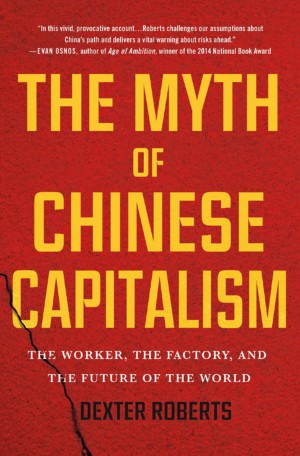Welcome to the Books Wire — our monthly page bringing you a smorgasbord of essential new reads on China. At the start of each month, we will feature a list of recommendations, including one book to put at the top of your list (“The One to Read”), as well as other new or upcoming releases (“The Shortlist”) and a sprinkling of gems from last year (“In Case You Missed It”).
We all know there are too many books about China. Some are birds’-eye views – the ones with red-and-gold cover designs, dragon illustrations and big picture theses on how China is changing the world. Others are on-the-ground reportage, academic takes on important questions or critical historical context. All have their value, and we’re here to sift through the pile to pick out the diamonds, with an interest in business and the economy but a wide remit and eclectic fare. Read them, disagree with them or just remember the titles for dinner party conversation – however you use our list, the Books Wire is here to expand your shelf.
The One to Read
The Myth of Chinese Capitalism by Dexter Roberts
Arguably the most important question to be asked of China is whether it can make the transition from growth led by manufacturing to a sustainable economy led by services and innovation. The answer to that question will affect not just investments but the world economy, China’s political stability and the future of this century. Dexter Roberts, a former reporter for Bloomberg Businessweek, is skeptical. In this skilfully wrought book, he examines the factors preventing China from easily making that leap, from authoritarian policies to systemic social inequality. Topics are as diverse as the emptying of China’s countryside as migrants move out and the robotization of industries in factory cities. Throughout, he grounds his material in the stories of a single family of farmers turned factory workers, giving this big picture a close-angle lens. A splash of cold water for all the China bulls out there.
March 10, 2020 | St. Martin’s Press. $28.99. | Buy
The Shortlist
The Scientist and the Spy by Mara Hvistendahl
As battles over corporate espionage and intellectual property theft rage between China and the U.S., one of the more unexpected front lines has been Iowa’s cornfields. It was here that the FBI investigated the attempts of alleged Chinese spies to purloin the trade secrets of top U.S. agricultural companies, involving low-speed car chases and years of surveillance. This gripping true tale, artfully told by a Pulitzer Prize finalist, proves that you can combine a topical issue with a compelling narrative. It also shows both sides to the story, including the U.S.’s questionable counterintelligence priorities.
February 4, 2020 | Riverhead Books. $28. | Buy
Vigil: Hong Kong on the Brink by Jeffrey Wasserstrom
Hong Kong’s protests may have quieted during the coronavirus scare, but they are already returning. The future of the city has never been more uncertain, even as Beijing is trying to align itself more closely with the mainland as part of the Greater Bay Area of the Pearl River delta. In this short read, Wasserstrom, a historian with a gift for straddling the chasm between academia and popular writing, tells the story of how Hong Kong got here, what the democracy movement feels like on the ground and how it will affect China and the world more broadly.
Feb. 11, 2020 | Columbia Global Reports. $15.99. | Buy
China’s Western Horizon by Daniel Markey
Just as the liberal international order used to be framed in terms of “the West and the Rest,” the systemic rivalry between China and the U.S. and Europe will play out, to a large extent, in the nations between the two — central and south Asia and the Middle East, where China is expanding its reach with a charm offensive and the renminbi to back it up. Markey, a scholar and former U.S. State Department official, researches perceptions of China in this new global “rest’” and how Beijing’s influence is favoring strongman governments and redrawing the world map, from the middle out.
March 2, 2020 | Oxford University Press. $29.95. | Buy
Great State by Timothy Brook
The last four decades aren’t the first time China has opened up to, and occasionally butted up against, the rest of the world — sometimes to understand the present, you have to go back to history. This sweeping history, from the Khans of the Yuan dynasty to the chairmen of the People’s Republic, is a readable overview of China’s dealings beyond its borders and how it reacted to foreign invasions and trade inside them. Brook shows not just how China has influenced its neighbors but how it in turn has been shaped by outside forces as much as any other state.
March 17, 2020 | Harper. $32.50. | Buy
Zhou Enlai by Michael Dillon
China’s premier from 1949 to 1976, Zhou Enlai has often been cast as a restraining influence on the excesses of Mao’s revolutionary zeal. In some respects, he paved the way for the opening of the economy and the reformist policies that succeeded his times, yet he is generally overlooked as a shaper of modern China. This new biography frames him as a statesman with real influence over national and foreign policy. It will fill in a historical gap for anyone who wants to understand how China continues to be haunted by the legacy of the Mao era.
March 5, 2020 | I.B. Tauris. $26.96. | Buy
In Case You Missed It
China’s New Red Guards by Jude Blanchette
The nationalist direction of China’s politics will ensure that this book published last summer will remain timely for years to come. Through a range of individual perspectives, Blanchette explores how the authoritarian control that the Communist Party exerts over Chinese society, under the firm thumb of Xi Jinping, appears to throw back to the Mao era – and how many of the patriotic young are flocking to that banner. The title may be alarmist, yet this political and intellectual rejuvenation of Maoist thought is setting up an ideological clash between China’s mainstream and Western notions of pluralism and free-market liberalism.
June 3, 2019 | Oxford University Press. $27.95. | Buy
The Transpacific Experiment by Matt Sheehan
“Hopping across the pond” used to mean a trans-Atlantic flight. Now the new pond is the Pacific, and the special relationship of China and California is a telling case study of how East and West overlap. Journalist Matt Sheehan paints this picture through a series of individual cases as diverse as the worlds of local politics, nouveau riche immigrants, Hollywood co-productions and artificial intelligence research. The result is an empathetic view of an interdependent reality and a deeply reported take on where the rubber meets the road when it comes to China’s global drive — and the frictions that result.
Aug. 13, 2019 | Counterpoint. $27. | Buy

Alec Ash is the books editor for The Wire. He is the author of Wish Lanterns. His work has also appeared in The Economist, BBC, SupChina, and Foreign Policy. @alecash
As an Amazon Associate, The Wire earns from qualifying purchases of books featured here.












